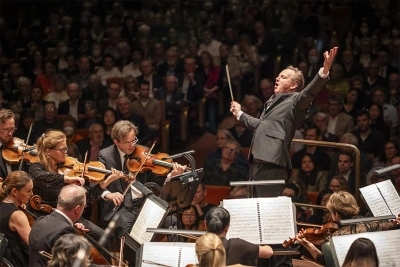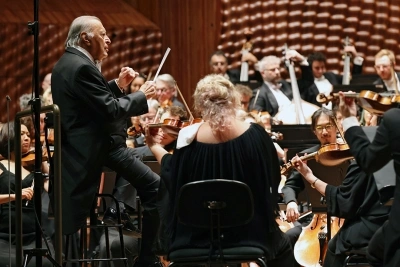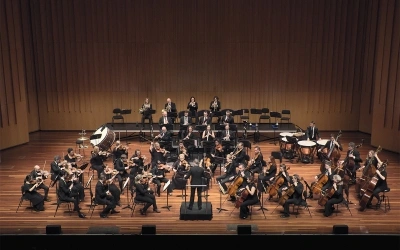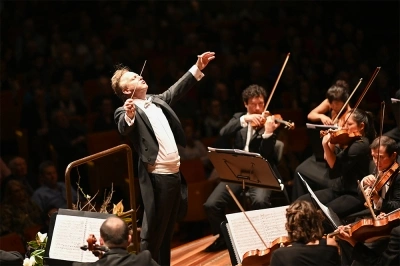Australian World Orchestra
Along with Beethoven, Schubert, and Bruckner, Gustav Mahler wrote nine symphonies. For each composer there was an incomplete, or unrecognised, tenth symphonic essay, which diligent musicologists have attempted to flesh out into meaningful ‘continuity scores’ or reconstructions. Mahler was barely fifty when he completed his Ninth Symphony and dared to tempt the fates with a Tenth; the growing seriousness of a heart complaint, however, meant that death, already a frequent visitor to earlier works, was never far from his mind. He died in 1911, not having heard in performance any of his Ninth (1909–10), his incomplete Tenth (1910–11), or his Das Lied von der Erde (Song of the Earth, 1908–9) – some four hours of his most moving music, much of which remained under-exposed for four decades until the ‘Mahler renaissance’ started in the 1950s.
... (read more)To place the Australian World Orchestra (AWO) in a truly global context, and before I deal with Wednesday night’s triumphant concert in Hamer Hall, I must briefly expand my terms of reference.
... (read more)‘Bringing the world back home’ was an early strapline of Australia’s SBS network. In those early multicultural days, it emphasised that being Australian did not restrict you from being culturally plural. It had the unfortunate implication, however, that Australia was not actually part of ‘the world’. We stood apart. Zoom forward to Covid-struck 2021, and Australia desperately wants to stand apart. Bringing that world back home has proven quite a technical difficulty, in sport, business, culture, even family reunion.
... (read more)Once in a while (more or less annually), Alexander Briger brings Australia’s orchestral musicians home from Europe, the United States, and other international and national playing fields for a cross between a concert, a jamboree, and a school reunion. It’s irresistible, and if there’s one thing that emerges from every AWO performance ...
... (read more)








